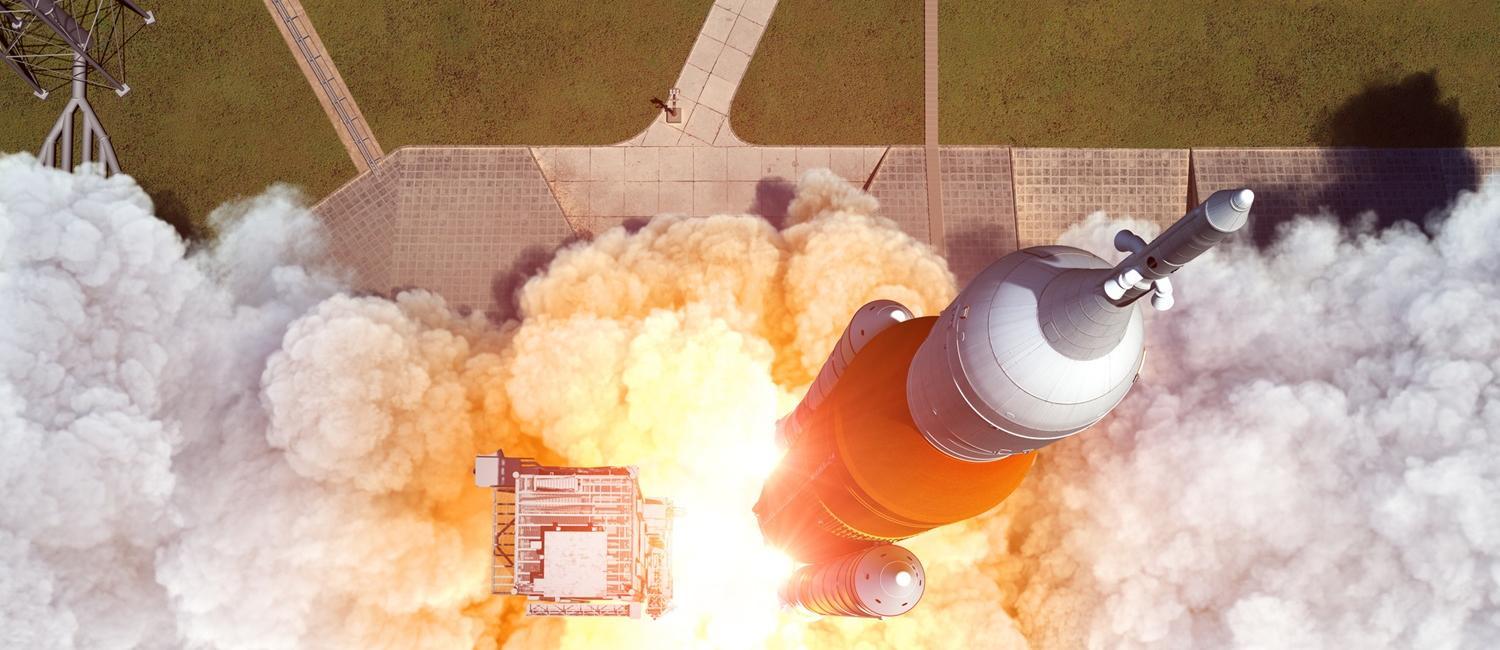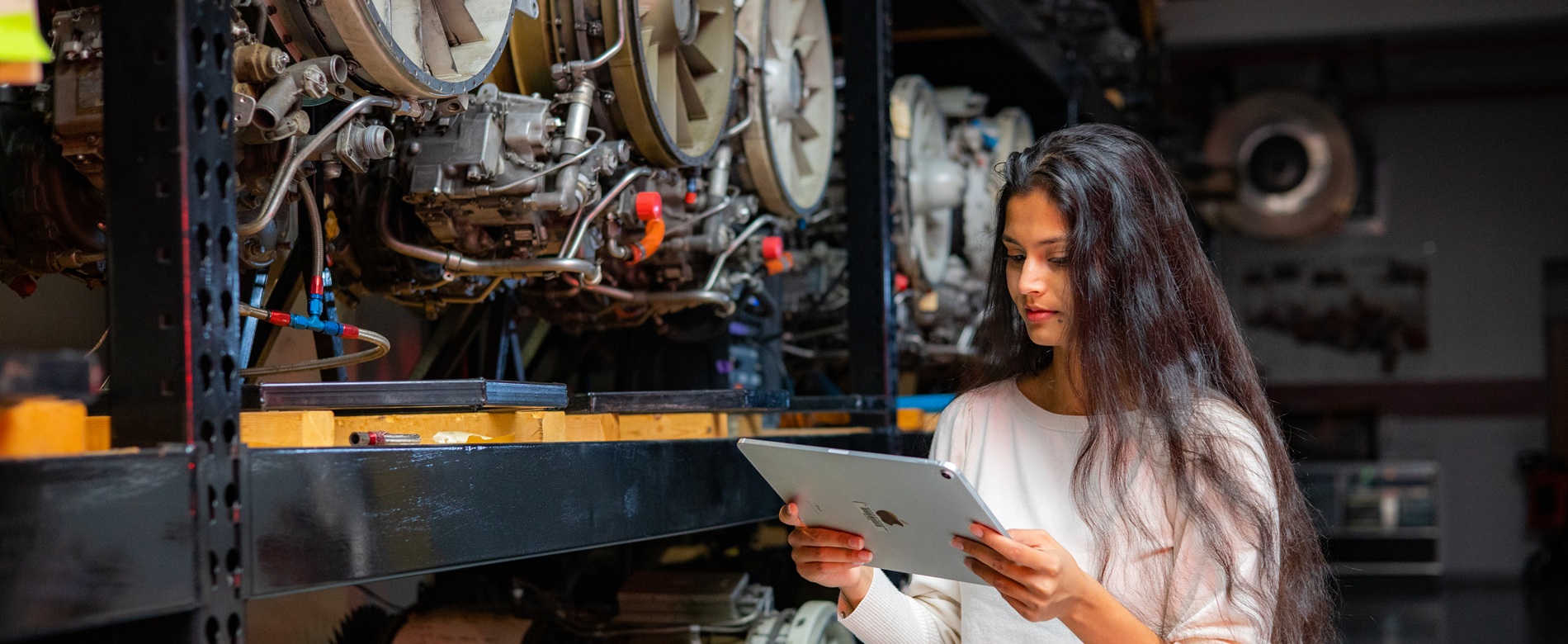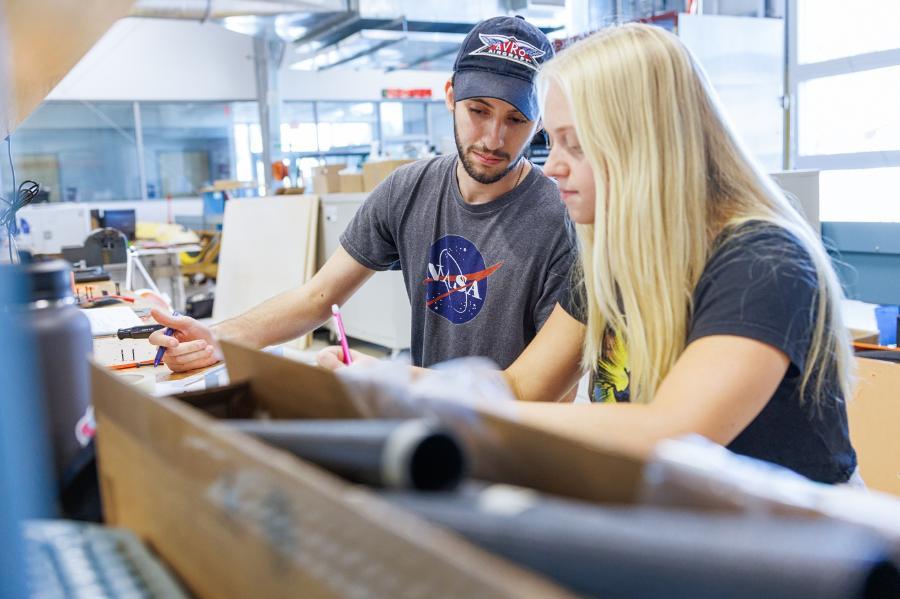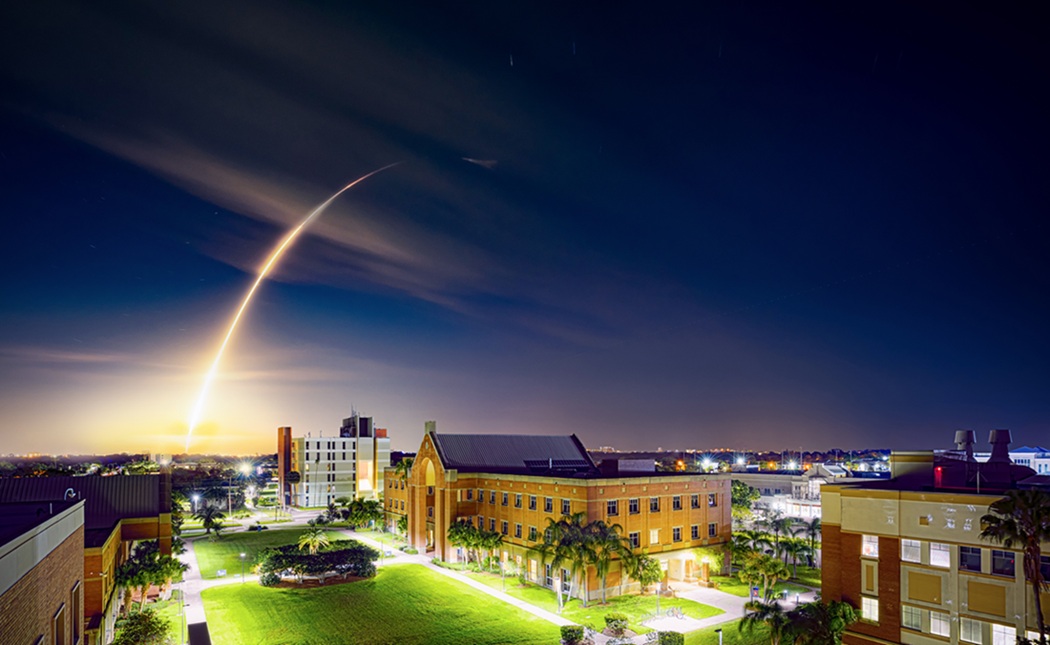From Labs to Launchpads: Aerospace Research
At Florida Tech, we’ve driven aerospace innovation since the dawn of the space program. Today, our research labs continue that legacy, advancing discovery in fluid dynamics, materials, propulsion and autonomy.
The Advanced Computational Fluid Dynamics & Turbulence Lab (ACFTL) studies turbulent flow to improve aerodynamics and propulsion. The Modeling Advanced Energetic Materials (MAEM) Lab develops advanced propellants using predictive modeling. The Metacomposites Integrity Research Lab (MIR-Lab) creates stronger, adaptable composite materials.
Our Space Vehicles and Robotics (SVR) Lab focuses on guidance and control using nonlinear control and machine learning. The Autonomy Lab pioneers data-driven methods for fully autonomous aerospace systems.
Together, these labs give students hands-on experience at the forefront of aerospace research.

 Give to Florida Tech
Give to Florida Tech 


-1389x1423.jpg)
